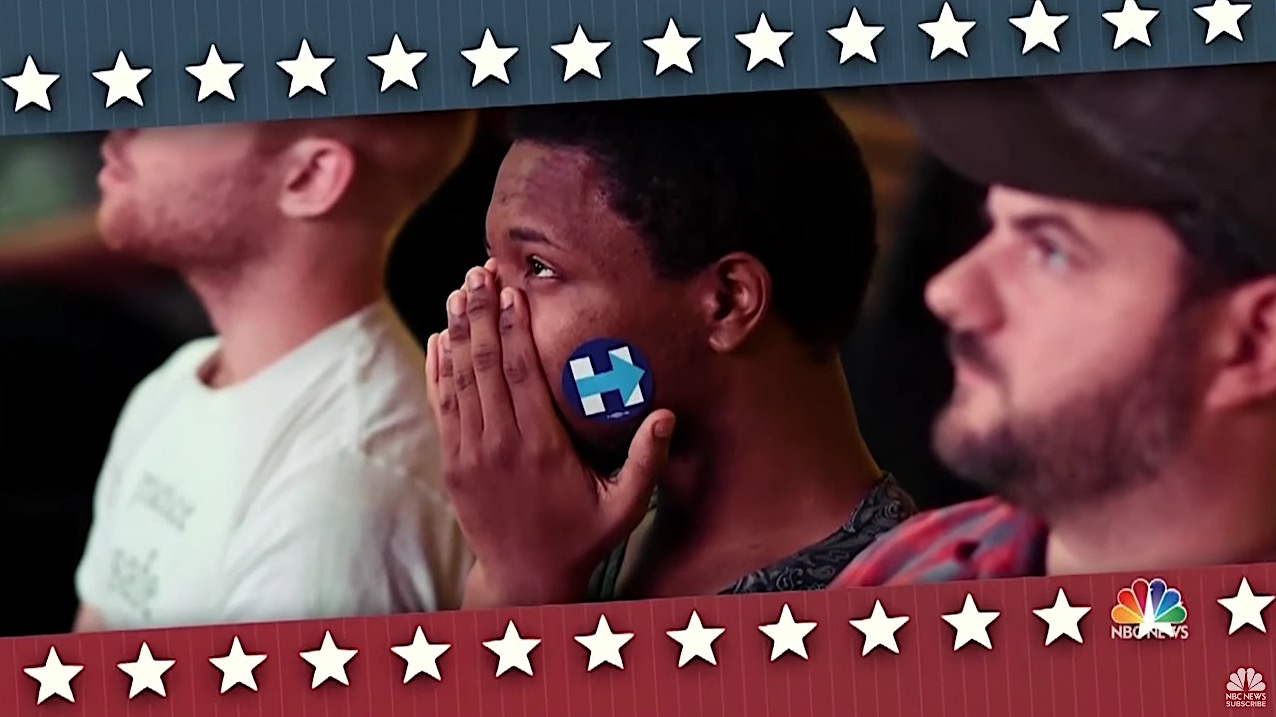'Election Stress Disorder' is a real thing. Here's how to fight it.


A free daily email with the biggest news stories of the day – and the best features from TheWeek.com
You are now subscribed
Your newsletter sign-up was successful
"If you think that the presidential election is driving you nuts, you're right," Harry Smith said on Monday's NBC Nightly News. That's kind of a glib way to put it, but the American Psychological Association reported last week that according to a new survey on stress in America, 52 percent of U.S. adults say the 2016 election is a very or somewhat significant source of stress. The APA dubbed this phenomenon "Election Stress Disorder." The survey, conducted by Harris Poll, found that the stress is bipartisan, affecting 55 percent of registered Democrats and 59 percent of registered Republican. Stress levels have almost certainly risen since the survey was completed.
"It could be how negative the whole campaign is, the discord is particularly heated, we seem to be more polarized," APA policy chief Lynn Bufka tells The Washington Post. "Also, we can work ourselves up over what the future president could do and if we get wrapped up in a lot of what ifs, that can make us really stressed, too." Senior citizens are the most stressed (59 percent), followed by millennials (56 percent), baby boomers (50 percent), and Generation X (45 percent). Whatever your age, the APA has some suggestions on how to cope with the Donald Trump–Hillary Clinton grudge match.
The first suggestion is maybe the most obvious (and least beneficial for the news media): "Read just enough to stay informed," but turn off the cable news, keep off Facebook and other social media, and limit your news consumption. "Take some time for yourself, go for a walk, or spend time with friends and family doing things that you enjoy," the APA says. Other suggestions include avoiding discussing the election often or violently, working to advance issues you think are important, paying attention to races and issues other than the presidential election, avoiding "catastrophizing" because America will probably be fine, and voting. If that doesn't help, Alice G. Walton at Forbes has some other suggestions.
The Week
Escape your echo chamber. Get the facts behind the news, plus analysis from multiple perspectives.

Sign up for The Week's Free Newsletters
From our morning news briefing to a weekly Good News Newsletter, get the best of The Week delivered directly to your inbox.
From our morning news briefing to a weekly Good News Newsletter, get the best of The Week delivered directly to your inbox.
You can also, as Smith notes, take an election-free vacation, at least at one enterprising Boston hotel that promises, for the time you're there, to save you from your own election obsession. Watch the NBC News report below. Peter Weber
A free daily email with the biggest news stories of the day – and the best features from TheWeek.com
Peter has worked as a news and culture writer and editor at The Week since the site's launch in 2008. He covers politics, world affairs, religion and cultural currents. His journalism career began as a copy editor at a financial newswire and has included editorial positions at The New York Times Magazine, Facts on File, and Oregon State University.
-
 Political cartoons for February 16
Political cartoons for February 16Cartoons Monday’s political cartoons include President's Day, a valentine from the Epstein files, and more
-
 Regent Hong Kong: a tranquil haven with a prime waterfront spot
Regent Hong Kong: a tranquil haven with a prime waterfront spotThe Week Recommends The trendy hotel recently underwent an extensive two-year revamp
-
 The problem with diagnosing profound autism
The problem with diagnosing profound autismThe Explainer Experts are reconsidering the idea of autism as a spectrum, which could impact diagnoses and policy making for the condition
-
 Judge blocks Hegseth from punishing Kelly over video
Judge blocks Hegseth from punishing Kelly over videoSpeed Read Defense Secretary Pete Hegseth pushed for the senator to be demoted over a video in which he reminds military officials they should refuse illegal orders
-
 Trump’s EPA kills legal basis for federal climate policy
Trump’s EPA kills legal basis for federal climate policySpeed Read The government’s authority to regulate several planet-warming pollutants has been repealed
-
 House votes to end Trump’s Canada tariffs
House votes to end Trump’s Canada tariffsSpeed Read Six Republicans joined with Democrats to repeal the president’s tariffs
-
 Bondi, Democrats clash over Epstein in hearing
Bondi, Democrats clash over Epstein in hearingSpeed Read Attorney General Pam Bondi ignored survivors of convicted sex offender Jeffrey Epstein and demanded that Democrats apologize to Trump
-
 El Paso airspace closure tied to FAA-Pentagon standoff
El Paso airspace closure tied to FAA-Pentagon standoffSpeed Read The closure in the Texas border city stemmed from disagreements between the Federal Aviation Administration and Pentagon officials over drone-related tests
-
 Judge blocks Trump suit for Michigan voter rolls
Judge blocks Trump suit for Michigan voter rollsSpeed Read A Trump-appointed federal judge rejected the administration’s demand for voters’ personal data
-
 US to send 200 troops to Nigeria to train army
US to send 200 troops to Nigeria to train armySpeed Read Trump has accused the West African government of failing to protect Christians from terrorist attacks
-
 Grand jury rejects charging 6 Democrats for ‘orders’ video
Grand jury rejects charging 6 Democrats for ‘orders’ videoSpeed Read The jury refused to indict Democratic lawmakers for a video in which they urged military members to resist illegal orders
